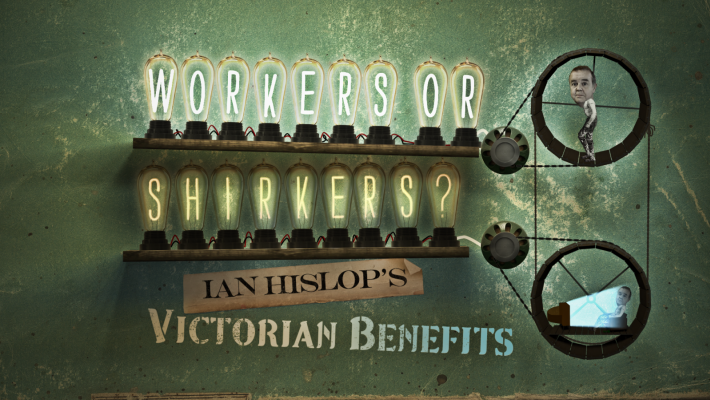
Ian Hislop’s entertaining and provocative look at Victorian attitudes to the poor sheds a sharp light on today: controversial benefits cuts, anxieties about scroungers, sensational newspaper reports, arguments about who does and doesn’t deserve welfare – it’s all there!
With his customary mix of light touch and intelligence, Ian tells the stories of five colourful individuals whose Victorian attitudes remain incredibly resonant – inspiring some revealing interviews: Iain Duncan Smith gets emotional when describing the lack of aspiration encountered as minister in charge of benefits; Deirdre Kelly (also known as ‘White Dee’ from Benefits Street) gets on famously with Ian, while teasing him for being middle class; and Owen Jones and Tristram Hunt MP provide illuminating food for thought on the hot button questions that still haunt us.
Pioneer of the workhouse Edwin Chadwick feared that hand-outs would lead to scrounging, and sought to make sure that workers were always better off than the unemployed. That sounds fair – but was his solution simply too unkind? James Greenwood, Britain’s first undercover reporter, made poverty a cause célèbre through sensational journalism – but is the media voyeuristic when it comes to reporting on those on benefits? Helen Bosanquet, an early social-worker, believed that poverty was caused by ‘bad character’. Are some people genuinely more deserving than others? Bosanquet came to blows with Beatrice Webb, whose economic explanations for the causes of poverty led her to argue for the first foundations of a welfare state. Finally, even if we want to be generous, are there limits on how much we can afford to help? That question faced Margaret Bondfield, Britain’s first female cabinet minister, who, despite her own working-class trade unionist credentials, controversially ended up advocating cuts at a time of national austerity.
Ultimately, says Ian, there are no easy answers: “There’s no doubt we’re confused about all this and have been for hundreds of years. We do want to be generous to the poor, but not I think on any terms. The vocabulary has changed, but the essential problem hasn’t.”

